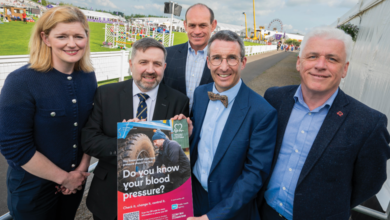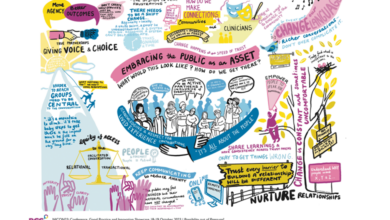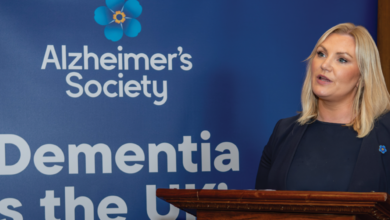Are we listening: The experience of children and young people in court settings
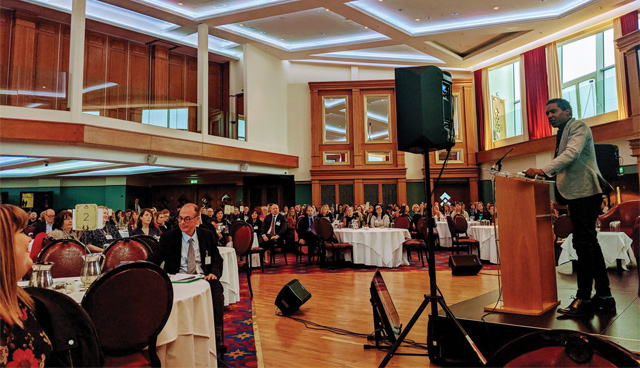
In February of this year, the Northern Ireland Guardian Ad Litem Agency (NIGALA) held a Conference of which our young people aptly shaped the agenda and title, posing the question Are We Listening?
The Northern Ireland Guardian Ad Litem Agency (NIGALA) is the ‘Voice’ for children and young people who are subject of public law and adoption proceedings before the courts in Northern Ireland. We now help over 1,000 children and young people through the court process each year. This makes it all the more important that we actively engage with them as key stakeholders to have their views and wishes heard.
The purpose of the conference was to create a safe, non-judgmental space for conversations about the personal journey of children, young people and professionals working and living in the care system.
Over 300 attended the conference including guardians ad litem, solicitors, members of the judiciary, representatives from the Department of Health, from England, Scotland and the Republic of Ireland and the voluntary sector. It was introduced as a day of learning, improving and developing our knowledge and skill together; true co-design and co-production.
One of the priorities in ‘Health and Wellbeing 2026: Delivering Together’ is to develop a leadership strategy which enables transformation by creating and building organisational culture that recognises and promotes collaboration and quality improvement. Based on the ethos of this strategy, harnessing our strengths and working collaboratively and effectively as one together, the conference brought together presentations from:
- Our young people: The pivotal input was the lived experience presented by our very own young people, whom have been through the care system with the support of a guardian. In their own words, through presentations and videos, they told us what has worked and what still needs to change.
- Lemn Sissay MBE: A child of the state, author, poet and broadcaster, official poet of the 2012 London Olympics, Chancellor of the University of Manchester since 2015. His latest memoir is entitled ‘My Name is Why’, reflects on a childhood in care, self-expression and Britishness, exploring the institutional care system, race, family and the meaning of home.
- Sir James Lawrence Munby: A retired English judge who was President of the Family Division of the High Court of England and Wales. Sir James has called for the family courts to become more transparent in order to increase public trust in the system. In 2019 he said the system was failing to accommodate the voices of children “well enough”, including in cases where they wished “to see the court, give evidence or meet the judge”. Although the courts have the interests of the child at their centre “children are invisible in the family court”.
- The Right Honourable Lord Justice Gillen: A retired High Court Family Judge and author of ‘Review of Civil and Family Justice in Northern Ireland’ (September 2017). His main message was how the child and vulnerable witnesses need to be listened to by the Courts in an “informed manner”. He concluded that our collective understanding of how best to hear the views of children and young people in the court setting “is developing and is still, to an extent, in its infancy”. One clear advantage of meeting the child in person is: “The judge will see the child as a real person rather than as the object of other people’s disputes or concerns.”
- Colleagues from Scotland: who shared the learning from their Care Review. The Care Review has listened to over 5,500 experiences. Over half of the voices were children and young people with experience of the ‘care system’, and adults who lived in care.
Meeting the individual and complex needs of very vulnerable children and young people is challenging and requires us to actively promote the ‘participation’ of those we try to safeguard and protect, through listening to their ‘voices’. This was a key message from the day and best illustrated in the following words of one speaker:
“Children must be listened to and meaningfully and appropriately involved in decision-making about their care, with all those involved properly listening and responding to what children want and need. There must be a compassionate, caring, decision-making culture focused on children and those they trust.”
“The judge will see the child as a real person rather than as the object of other people’s disputes or concerns.”
The words children use reflect how they feel and often present a mixture of ‘emotion’ and ‘confusion’. For the family courts and professionals involved we must not simply ‘hear’ children who are able to express a view, but we must actively listen to what they have to say, weight it, evaluate it and always give reason for not giving effect to it. The simple truth is, it is they who have to live with these decisions.
A second and recurring key message from a number of our young people and speakers was the importance of ‘family’ connections and links even in the face of significant challenges and adversities lasting over lifetimes:
“Where children are safe in their families and feel loved they must stay — and families must be given support together to nurture that love and overcome the difficulties which get in the way.”
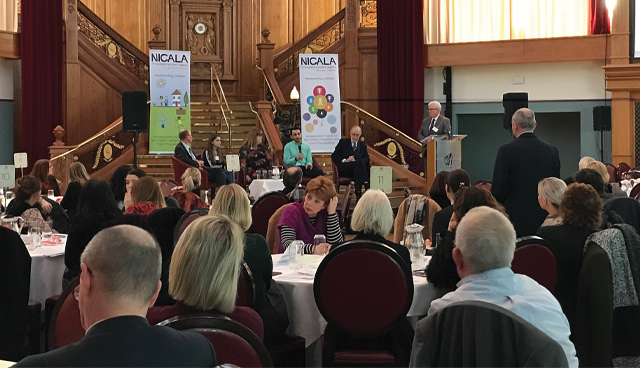
There were also a number of non-verbal messages poignantly displayed in the Titanic Centre on the day. Presentation boards with graffiti style writing exhibited questions and messages from our young people and a blazer jacket with labels attached featured as one of the main center pieces. Our young people wrote messages on each label according to how each of them felt they had been (or still are) labelled. For example: “uneducated”, “unwanted”, “not likely to achieve”, “needy” and “has no ambitions”, were just a few. They creatively portrayed a very powerful message; children who have been in care sometimes feel they are walking around with these labels attached to them for life, regardless of how successful they are.
Their message to us? “Break the stigma. We are not defined by a care background. There must be more focus on the positives and success stories… I am not a statistic; I am a child with a name.”
A comment made by a member of the audience nicely sums up what we must continue to do going forward: “Although the stories shared span across generations, the experiences remain the same. We must listen if we are to change things.”
For information and updates on our upcoming conferences and training events you can check our website at nigala.hscni.net and follow us on Twitter @NI_GALA1


